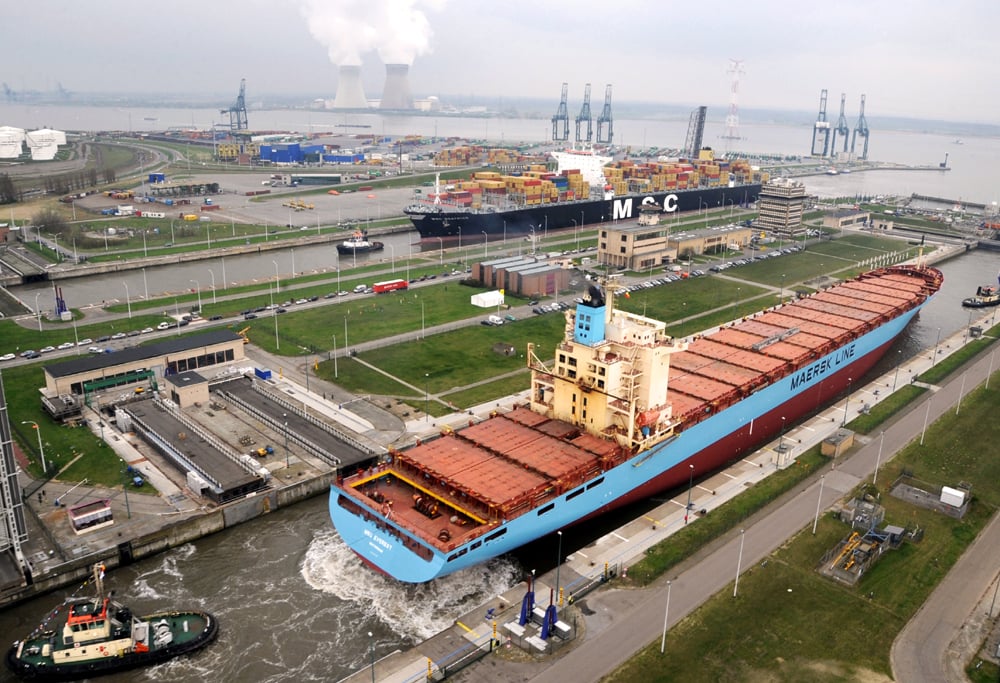Ship Movements Resume at Belgian Ports After Pilots Suspend Job Action

Shipping has begun to move again at Belgium’s ports after a 10-day job action by the unions representing the pilots in protest of government pension reforms. The return to a normal work schedule came a day after a national strike brought large parts of Belgium, including the seaports, to a stop.
The unions representing the pilots said they were giving the government 10 days, until October 24, to demonstrate concrete progress through mediation. The job action came after the union accused the government of not proceeding with a framework that had been agreed in June, which called for resolving the pension reforms by the end of November and better alignment of the pensions for pilots with other government workers. The unions said they were giving “negotiations another chance.”
Pilots had been adhering to work rules and limiting their available hours since October 5. The effect was to create a massive backlog of ships stuck at the dock without an assigned pilot or waiting in the offshore anchorage.
Further adding to the delays was a national strike called by the public unions on October 14. By midday, the police reported there were 80,000 protestors in Brussels calling for the government to relax its plans for pension reforms and spending cuts. The strike impacted operations at the country’s airports and saw the Port of Antwerp and others closed to inbound and outbound vessels due to understaffing in the maritime control center. The Port of Antwerp said there was activity inside the port, but no vessels could transit due to the national strike. In the capital of Brussels, reports said buses, trams, and the subway were all suspended.
The Port of Antwerp reported, as of late on Wednesday, October 15, more than 180 vessels remained backlogged (60 outbound and 128 inbound vessels), but operations were moving again. They, however, said the logistics chain is at only about 70 percent of capacity as the pilots are continuing to enforce 12-hour rest periods. They expect it will take days to clear the backlog of ships at both Antwerp and Zeebrugge.

that matters most
Get the latest maritime news delivered to your inbox daily.
The other major port, Rotterdam, also reported that container vessels were again moving after a week-long strike by lashers for better pay. A court ordered the lashers responsible for securing and releasing containers on docked vessels back to work as of Monday morning. Negotiations were due to resume, while the court said that if there was no progress, the strike could resume on Friday.
Congestion had been building at two of Europe’s busiest North Sea ports, with the potential for impacts along the routes of many carriers. Some vessels were already skipping the port while Maersk, for example, told customers it was contingency planning and monitoring the situation. The hope is that the backlogs can ease while the negotiations resume.
